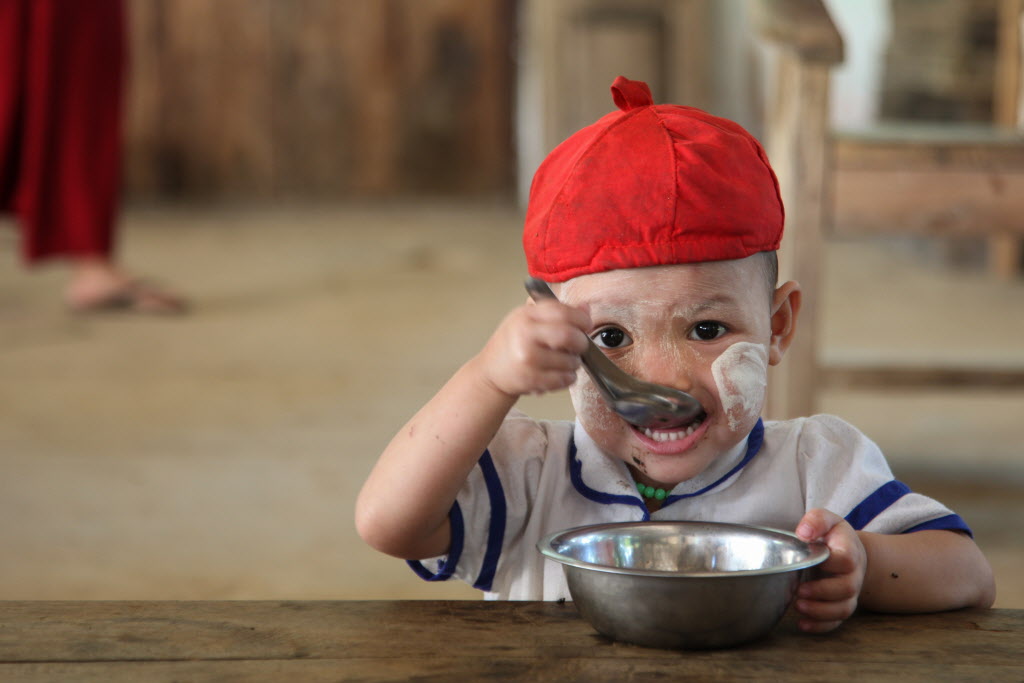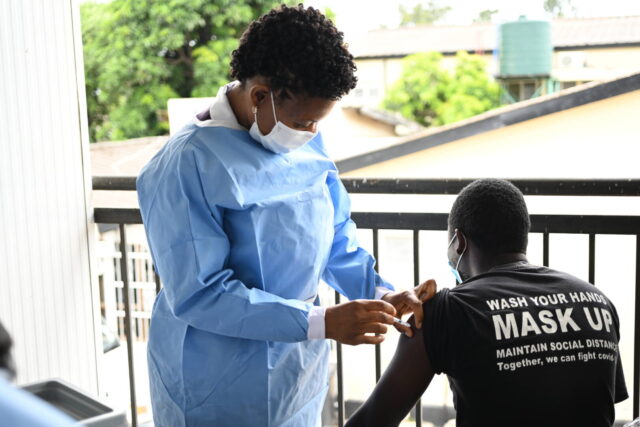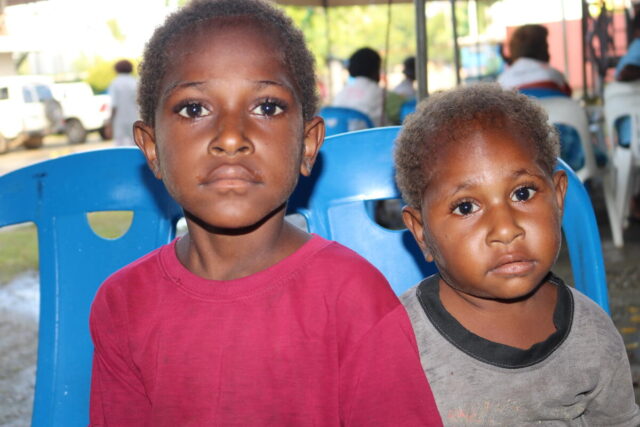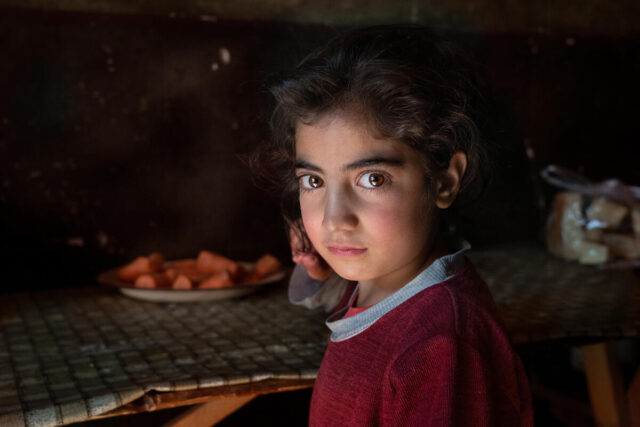Hnin started out as a happy, healthy baby in Myanmar. Her mother, 36-year-old Chaw Yupar, exclusively breastfed Hnin for months after she was born.
“When my daughter turned 6 months, I went out to work and left her at home with her elder siblings,” Chaw says. “They fed her snacks that were available from the local shop. I fed her my breast milk when I returned home in the evening.”
But when Hnin turned 2, she became very sick.
Worms leech nutrients out of tiny bodies
“She suffered from frequent bouts of diarrhea,” Chaw says. “I tried to treat her at home with my limited knowledge. She lost her weight as well. I had no idea what happened to her.”
Out of ideas, Chaw talked to a midwife, who told her Hnin had worms. She recommended Chaw take her daughter to the hospital.
“When I reached the clinic in Thabaung, the doctor accused me of delaying to bring my child,” Chaw says. “I didn’t understand at first, but later realized that if I had not brought her in, I would have lost her.
“The doctor gave my daughter medicine and deworming pills. After taking the treatment and pills, she felt better. World Vision supported all the medical costs.”
The medicine saved Hnin’s life, and she recovered.
Mothers learn healthy eating and hygiene habits
Chaw returned to work, again leaving her child with her older siblings. But once again, the siblings fed Hnin cheap food from the local snack shop. The food didn’t have the proper nutrients to support growth, so Hnin’s weight dropped, and she became severely malnourished.
This time, a World Vision intervention program in Chaw’s village helped. The program leaders identified 18 children in the community to participate, including Hnin.
The 12-day program taught mothers how to feed their children affordable, locally available foods to promote healthy child development. They also educated the moms about proper hygiene and health practices.
“At first, my daughter didn’t like the food, and she refused to eat,” Chaw says. “But she finally ate it.”
A new, healthy way of living
At the end of the program, Hnin’s weight had increased by 2.2 pounds to 21.2 pounds. Still, Hnin continued in another round of the program.
“I was surprised to see my daughter’s weight increase to 10.3 kilograms (22.7 pounds) after two sessions,” Chaw says with joy.
Things didn’t just improve for Hnin, but also for Chaw as a result of the program.
“Before, when I return home from the fields, I would immediately hold my daughter and feed her without washing my hands,” Chaw says. “I think my daughter got diarrhea because of this. I learned to wash my hands first before holding my child, as well as before feeding her.
“Now, I do not need to push her to eat. She asks herself. She also eats rice and curry at home. I try to prepare foods based on the ‘3 Food Groups’ chart [received in the program].”
As Chaw welcomes her seventh child into the world, she knows her new baby will not suffer from worms, diarrhea, and malnutrition like Hnin did.
“For this baby, I will practice the hygiene behavior and take care of the baby well so that she or he will not suffer like Hnin,” Chaw says with a smile.
Ways you can help
- Praise God for healing Hnin! Pray that other children will receive treatment for worms and malnutrition, so they can grow up healthy.
- Make a one-time donation to provide life-saving medicine and supplies. Your gift, in partnership with supplies from top pharmaceutical companies, multiplies 12 times in impact to provide life-saving medicines, including de-worming medication and Child Survival Kits, and other care to children and their families in the world’s poorest countries.




